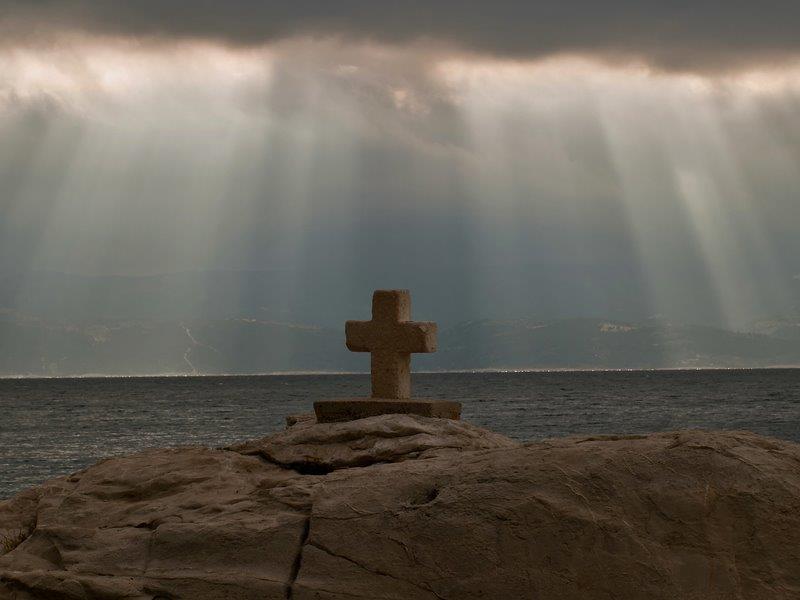Guest Contributor: Rob Sisson
Over the past few weeks, we’ve read or heard many conservative voices offering advice to Pope Francis ahead yesterday’s release of Laudato si. That advice can be distilled down to “Leave science to the scientists”. Unfortunately, that advice doesn’t play well in Peoria or anywhere else for that matter.
I don’t believe Pope Francis’ master degree in chemistry makes him any more of an expert on climate science than does my bachelors degree in economics make me one. As head of the largest and oldest Christian church on earth, the Holy Father does have access to the best and brightest scientists in the world. And he has the wisdom to call upon those experts and to listen to them.
One of the most respected message-testing consultants in Republican circles recently performed dial testing with focus groups of people who self-identified as “strong Tea Party supporters.” As they viewed a clip of a politician saying, “I’m not a scientist”, the Tea Party cohort reacted off-the-charts negatively. In later one-on-one interviews, the focus group participants were asked about their reaction to that line. Almost uniformly, they answered, “I know you’re not a scientist, but we elected you to one of the most powerful positions in the country with access to the world’s greatest scientists. We expect you to be smart enough to seek their advice and act on it.”
So, the casual dismissal of the Pope’s encyclical by political candidates and pundits simply doesn’t work.
Admittedly, I’ve only read through Laudato Si once. As with past encyclicals, it will take many readings with the type of focus and attention reserved for lectio divina to fully absorb and recognize the nuanced language and guidance. Based on my initial review, the document might be more accurately characterized as a Pro-Life letter than an ecological one. In this sense, it is also highly conservative. Readers of this blog are smart enough to know what I mean by both “Pro-Life” and “conservative”. The logic and arguments have been trotted out more than Seabiscuit, so I won’t expound on them here. (And I’m smart enough to know and understand the retorts to my assertion—no need to leave them in the comment section!)
Two passages in the encyclical jumped out at me. Both open the door for conservative and Republican leadership on the issue of climate change, especially if framed in Pro-Life language.
First, Pope Francis acknowledges there is no one solution with which to tackle climate change:
“Finally, we need to acknowledge that different approaches and lines of thought have emerged regarding this situation and its possible solutions. At one extreme, we find those who doggedly uphold the myth of progress and tell us that ecological problems will solve themselves simply with the application of new technology and without any need for ethical considerations or deep change. At the other extreme are those who view men and women and all their interventions as no more than a threat, jeopardizing the global ecosystem, and consequently the presence of human beings on the planet should be reduced and all forms of intervention prohibited. Viable future scenarios will have to be generated between these extremes, since there is no one path to a solution. This makes a variety of proposals possible, all capable of entering into dialogue with a view to developing comprehensive solutions.”
Then, Pope Francis agreed with almost every free market conservative that Gorean cap-and-trade is not a good idea:
“The strategy of buying and selling “carbon credits” can lead to a new form of speculation which would not help reduce the emission of polluting gases worldwide. This system seems to provide a quick and easy solution under the guise of a certain commitment to the environment, but in no way does it allow for the radical change which present circumstances require. ”
Rather than dismissing the encyclical out-of-hand or patronizing the Pope, conservatives would be wise to offer market oriented policies that address the Pontiff’s concerns. I’m partial to “Cleaner, Here, Now,” ConservAmerica’s policy view that we have the ability, today, to drastically reduce greenhouse gas and toxic emissions with nuclear, hydro-power, natural gas, wind, solar, and greater energy efficiency technologies. Addressing the environmental negatives of energy production is a Pro-Life ideal, but so is insuring a stable, growing economy to support human lives and families.
With 70 million Catholics in the United States and with the Pro-Life movement a key primary constituency for conservatives, picking a fight or denigrating the Pope is political science malpractice. I’m reminded of NBC News’ Anne Thompson who once answered the question of whether she believed in climate change, “I believe in God. Climate change is science.” I hope she didn’t copyright the slogan. Thompson, a graduate of Notre Dame and member of its Board of Trustees, provided the perfect tagline for a pro-life political candidate hoping to win in 2016.


